You may also be interested in
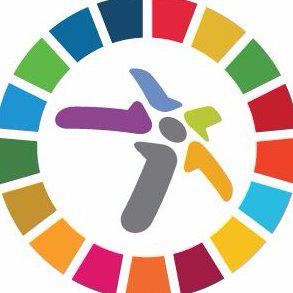
Tunis Agenda for the Information Society
The Tunis Agenda for the Information Society highlights the need to bridge the digital divide, prioritize the development of ICT infrastructure in developing countries, promote internet governance principles, and ensure a people-centered, inclusive, and development-oriented information society. It emphasizes the importance of multilateralism, capacity building, and creating an enabling environment for sustainable ICT development. The document serves as a roadmap for advancing the global information society and ha...

The impact of development on a society
‘A critical activity will be information dissemination – educating people about IG issues and assisting them in formulating views and opinions that can not only be applied to their lives, but which can be communicated to national and regional leaders as appropriate.’ - Michele Marius from Jamaica
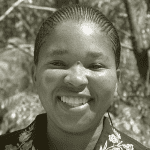
Fulfilling a promise
‘I can confirm that the level of awareness of IG issues is increasing amongst the general ICT community, and even more people from Botswana getting involved in IG issues at local level and key stakeholders are finally taking notice.’ - Gaongalelwe-Gaolaolwe Mosweu from Botswana

[HOW-TO] How to use Wonder for hosting an event
Wonder is a video communication platform that allows for larger online group gatherings that mirror on-site meetings.

[GUIDE] Who should be on your organising team?
Human resources is a common issue among event organisers. The size of your organising team depends on the size of your event (and your budget).

Broadening the diplomatic bandwidth
‘I believe whistle-blowing websites have a greater role to play in the future of the humankind. These are a few of the issues that I became aware of through DiploFoundation, on whose blogosphere these issues continue to be debated.’ - Felix Samakande from Zimbabwe
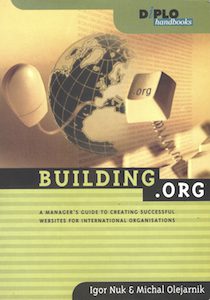
Building.org: a manager’s guide to creating successful websites for international organisations
Building.org walks the reader through the decision-making process involved in creating a website: Should development of the website be outsourced or done in-house? What staff should be hired? How should the project be managed, and which department should be in charge? Building.org introduces the reader to each step, from defining goals to choosing the right technology, working with content, and obtaining and analysing user feedback.
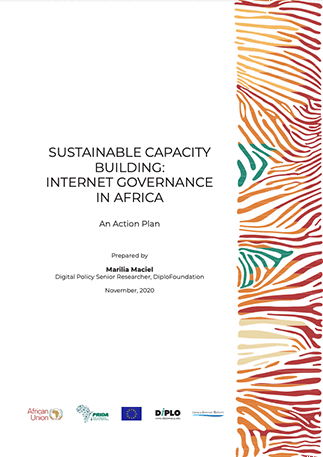
Sustainable Capacity Building: Internet Governance in Africa – An Action Plan
Enhancing sustainable capacity building on internet governance (IG) would have positive consequences within and beyond the African context. Considering the importance of the issues that fall under the framework of IG – ranging from providing access to infrastructure to promoting cybersecurity and fostering emerging technologies – it is possible to conclude that strengthening IG capacity building could ultimately contribute to developing the capacities required for implementing the Digital Transformation Strategy for Africa (2020-2030) (African Union, 2020a) and the Agenda 2063 (AU Commi...
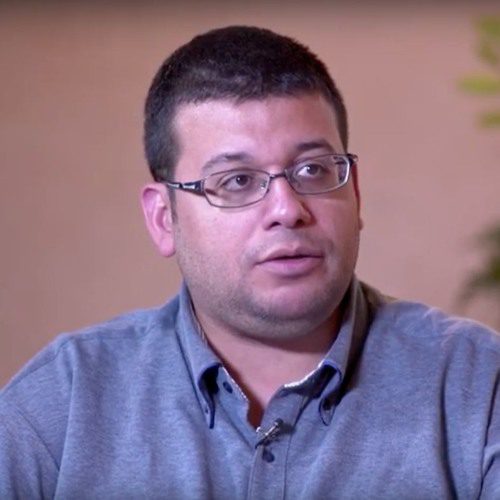
Developing new ways to govern the Internet
'Even if I am participating in the process during the whole year and interacting with many people, meeting them face-to-face at an event like the IGF remains essential... it is the most effective way to network...' - Rafik Dammak from Tunisia

Creating enabling environments for access to the Internet
'In most developing countries access to the Internet for people without disabilities is an issue. Thus the thought of access to people with disabilities is rarely considered.' - Emmanuel Edet from Nigeria
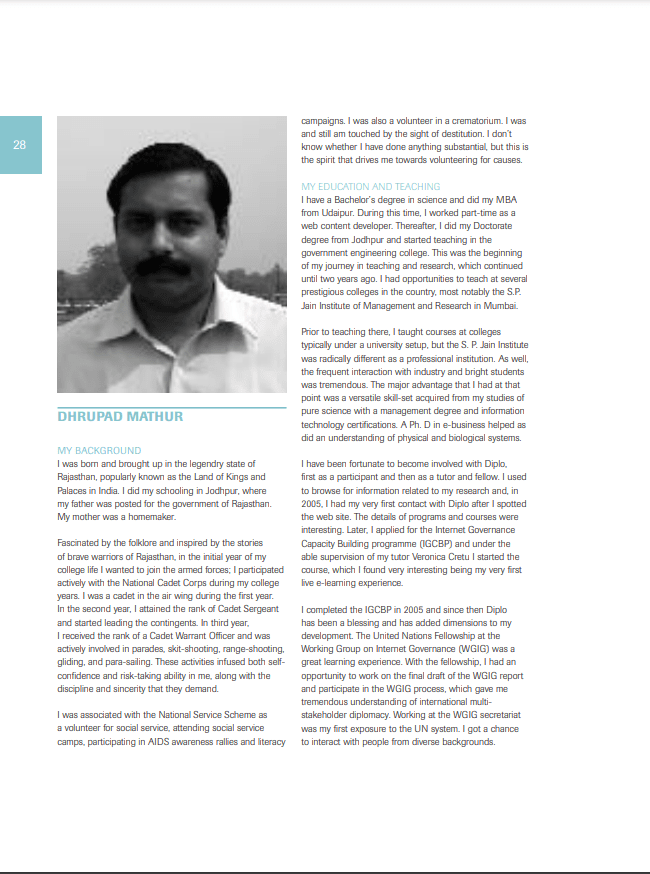
A sustainable project with great results
It is a sustainable project with great results. The participants of our capacity building projects are currently taking charge of managing local initiatives, drafting regional ICT policy plans and training their own teams.' - Dhrupad Mathur from India
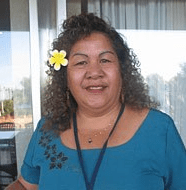
Developing ICT for youth and people in rural settings
'There is a huge need for online learning infrastructure at the national level in my country and I am sure it is the same in other small island developing states... I encourage governments to have their public servants, in particular youth to study Internet governance...' - Fuatai Purcell from Samoa

[HOW-TO] The art of moderating effectively
Successful moderation, based on a smart blend of skills, is what creates a unique experience. Moderation is even more important in online events. Which skills are at play? Read on.

Opening one’s eyes to opportunity
'John Walubengo introduced me to KictaNET... I got involved in ICT and... what it could do at a time when Kenya was revising its national ICT policy...' - Judith Okite from Kenya

[HOW-TO] How to use UberConference for hosting an event
This guide will provide basic information on the use of UberConference video communication platform.

Multistakeholderism is real and can work’
'To the IGF in India I brought the personal challenge to look more deeply into the arguments I was not familiar with, and to try to find the “two sides of a coin” in every speech.' - Raquel Fortes Gatto from Brazil
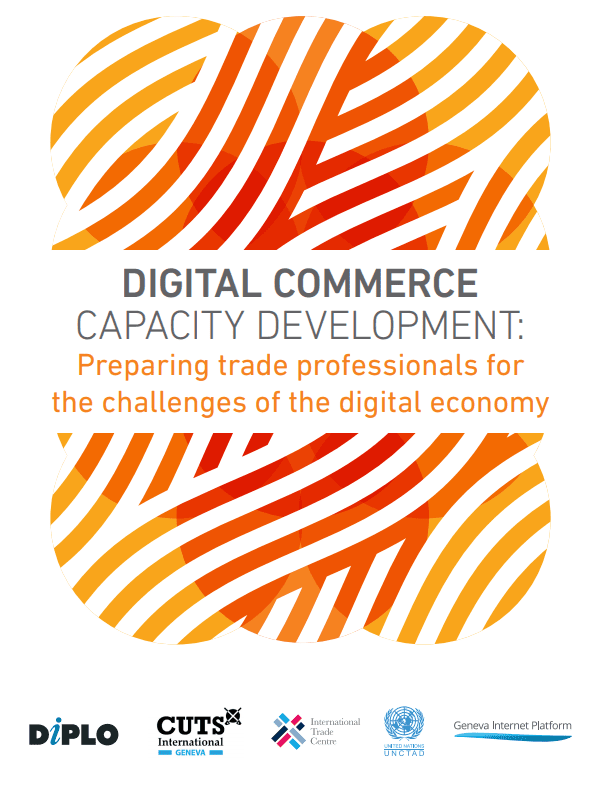
Digital Commerce Capacity Development
This publication presents the thematic approach, methodology, achievements and lessons learned from a capacity development initiative on e-commerce jointly offered in 2017/2018 by DiploFoundation, CUTS International Geneva, the International Trade Centre (ITC), the Geneva Internet Platform(GIP), and delivered with the United Nations Conference on Trade and Development (UNCTAD).

E-learning at Fiji National University
In this paper, Fiji National University (FNU) was used to determine the possibility of e-learning. A new programme was chosen and a programme document was written. Based on the programme, a unit syllabus was developed. Given the infrastructure of the information and communication technology (ICT) department at FNU, this project will be deployed as a pilot project for evaluation and monitoring of e-learning research.

Strengthening the region’s participation
‘Witnessing the open community policy development process at the AfriNIC community led me to further appreciate the importance of the Policy Research Phase of the Diplo IGCBP. AfriNIC-13 was an eye opener...’ - Maduka Attamah from Nigeria
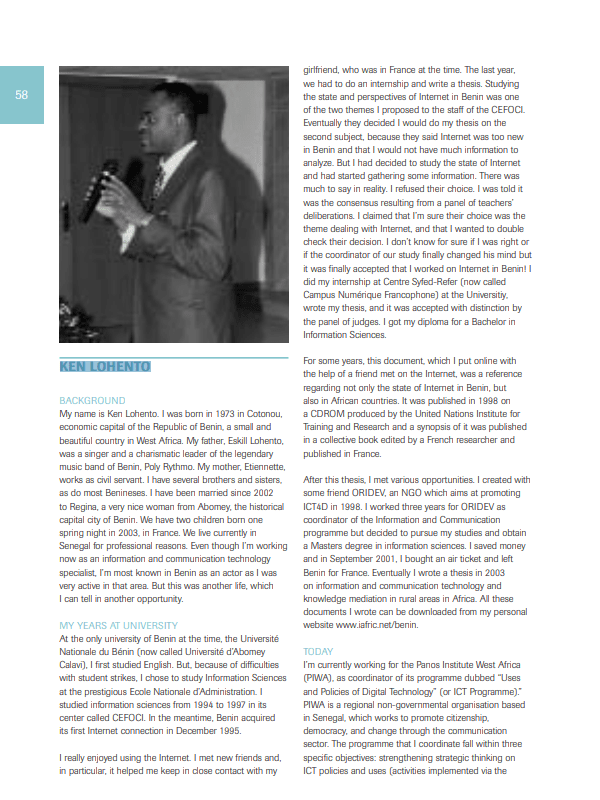
Facing challenges for developing countries
'Development challenges are enormous for Africa and they go beyond promoting information and communication technology. One important issue currently is how Africa will solve its energy problems, which are a threat to progress on the continent.' - Ken Lohento from Benin
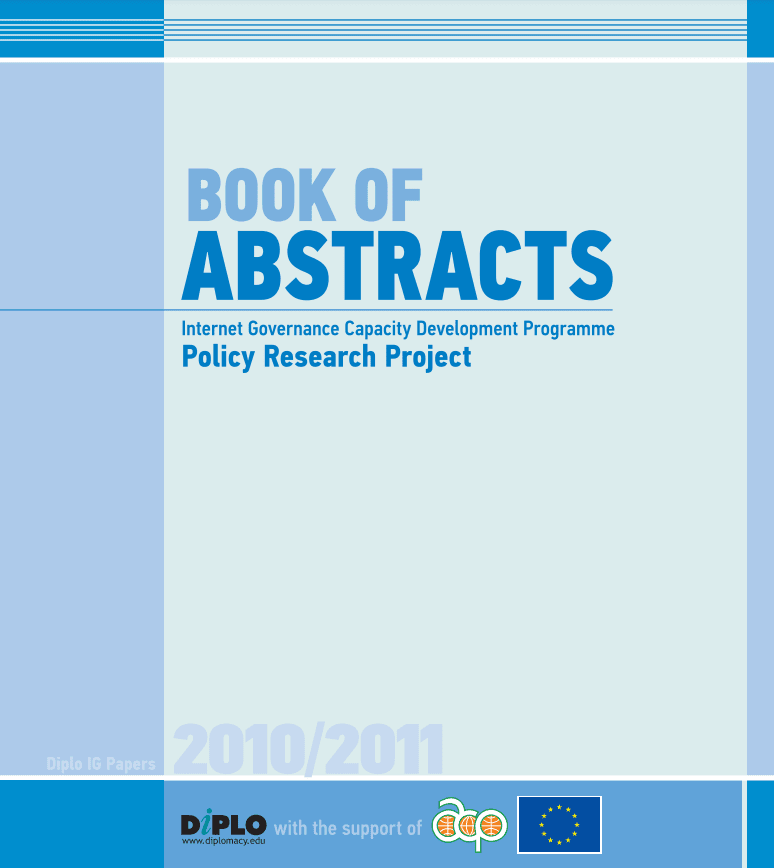
Book of Abstracts – IGCBP Policy Research Project
Book of Abstracts – IGCBP Policy Research Project.

[HOW-TO] How to use Jitsi for hosting an event
Jitsi is a set of open-source projects that enables users to create secure video conferences easily.

Launching an ICT campus and beyond
'I found that living in a developed economy is quite different from living in my developing country environment. Things like the Internet are taken for granted...In sub-saharan Africa, lack of the same (Internet) resources would automatically discourage me...' - John Walubengo from Kenya
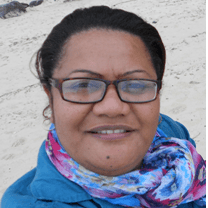
Strengthening capacity and impacting policy
'I also see an increasing responsibility for leaders to govern equitably, fairly, and with justice. Their flexibility and openness to drive the nation and the region forward is becoming increasingly evident.' Sala Tamanikaiwaimaro from Fiji

[HOW-TO] Comment participer à une réunion sur Zoom
Zoom est l'un des outils en ligne les plus populaires. Si vous êtes novice, voici un guide simple pour accéder à votre salle en ligne en Zoom.
[HOW-TO] Comment utiliser Zoom pour organiser des réunions en ligne
La facilité d'utilisation de Zoom l'a mérité une place de choix parmi les plateformes en ligne les plus populaires au monde. Dans ce guide, nous vous montrons comment l'utiliser.

E-teaching social programmes
'I had to use all possible means of getting people to participate actively in the programme... What learning style does a person have? Is it part of his or her culture or not? These were the questions for which I looked to find answers.' - Veronica Cretu from Moldova
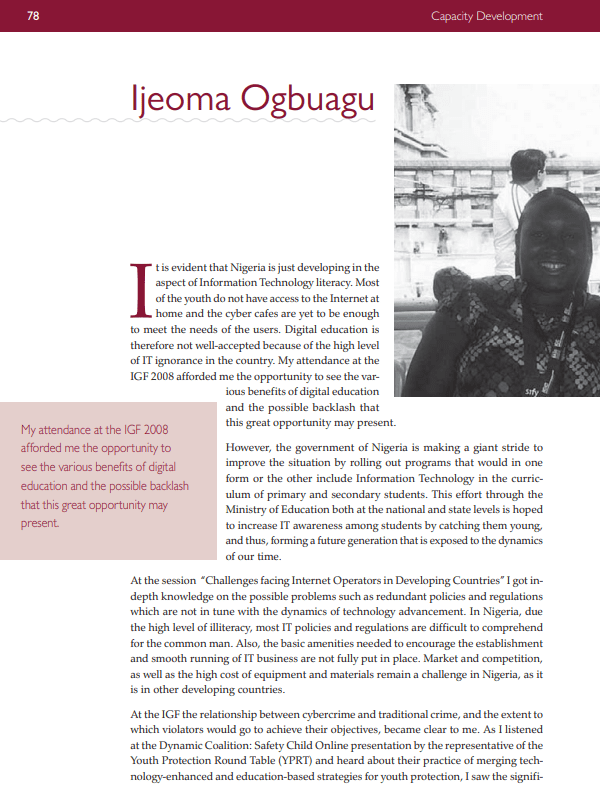
Exploring the benefits of digital education
'The government of Nigeria is making a giant stride to improve the situation by rolling out programs that would in one form or the other include Information Technology in the curriculum of primary and secondary students.' - Ijeoma Ogbuagu from Nigeria
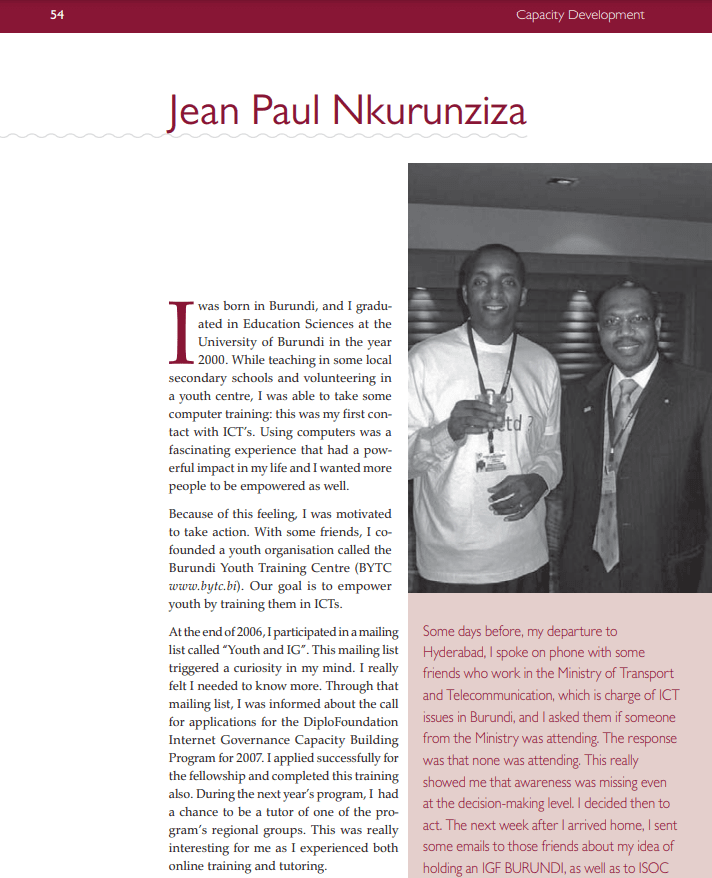
A developing country’s perspective on IG issues
'Among all the country members of the East African Community, only Burundi, my country, was absent from that EAIGF... That’s why, at the end of the IGF in Hyderabad, I came back with a new dream: An IGF Burundi.' - Jean Paul Nkurunziza from Burundi

[HOW-TO] How to use Whereby for hosting an event
Developed in Norway, Whereby is an emerging conferencing platform that includes all essential features available in other frequently used platforms and offers much more!
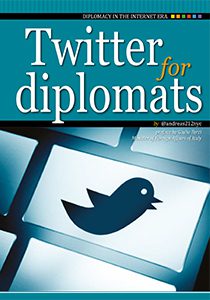
Twitter for Diplomats
Twitter for Diplomats is not a manual, or a list of what to do or not to do. It is rather a collection of information, anecdotes, and experiences. It recounts a few episodes involving foreign ministers and ambassadors, as well as their ways of interacting with the tool and exploring its great potential. It wants to inspire ambassadors and diplomats to open and nurture their accounts – and it wants to inspire all of us to use Twitter to also listen and open our minds.

Pursuing technology with a passion
'I am equally humbled to have found myself in a position to utilise the Internet and all of its potential and underlying capacity to be the catalyst for development and transformation in my country, in my region, and in SIDS.' - Tracy Hackshaw from Trinidad and Tobago
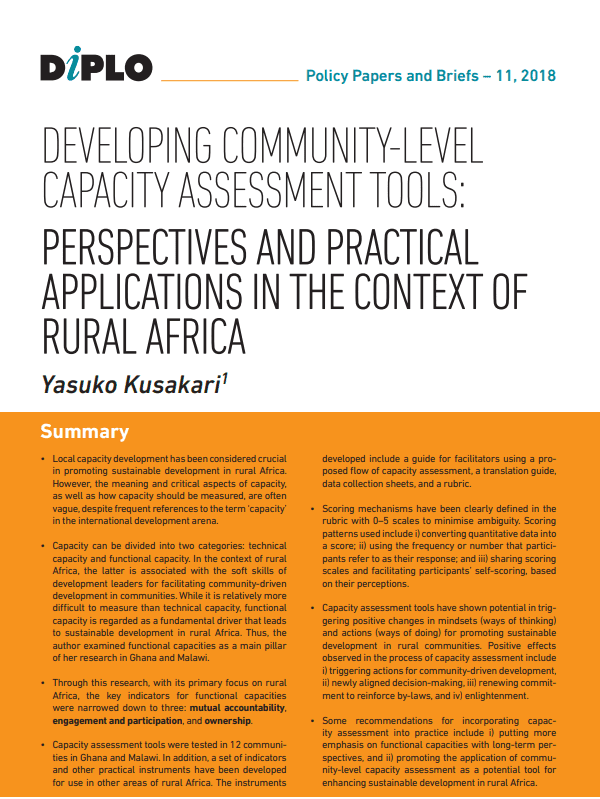
Developing Community-level Capacity Assessment Tools: Perspectives and Practical Applications in the Context of Rural Africa (Briefing Paper #11)
The message provides an overview of developing community-level capacity assessment tools relevant to rural Africa to improve local development strategies.
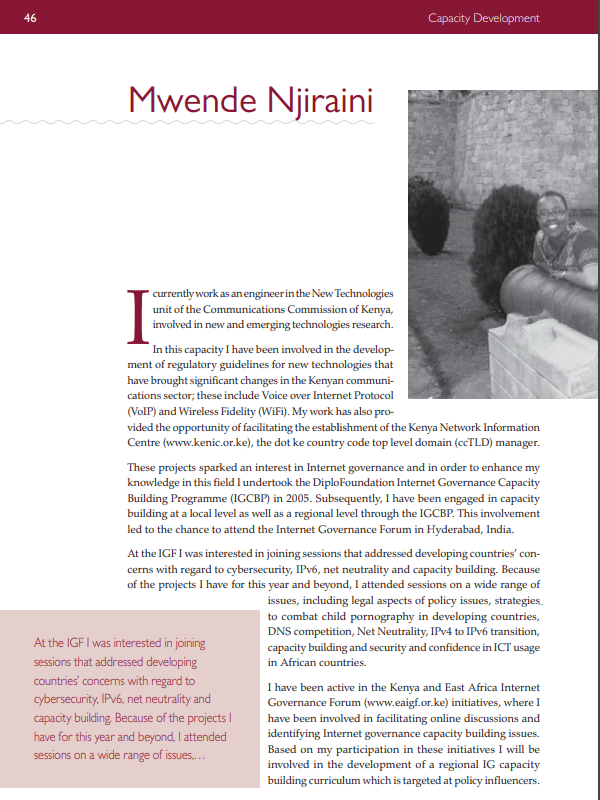
Facilitating meaningful participation of Africa
'Attending the IGF presented me with an opportunity to interact with the people behind the emails and with notable personalities in the IGF process or Internet-related institutions including the IGF secretariat, ITU, ICANN, etc.' - Mwende Njiraini from Kenya

Empowering women in the IG process
'At the ICANN meeting in Puerto Rico last year I was not aware of anything unusual in the demographics, but in Hyderabad I noticed that while men of my age were quite well-represented, there were comparatively few women...' - Deirdre Williams from St Lucia

Local hubs and the work of the RPWG
'It was also very important for me to join other members of the RPWG to be physically present at the IGF, so we could follow the implementation of the RP mechanism, working in partnership with the Secretariat... and providing assistance to the hubs.' - Marilia Maciel from Brazil

The e-learning experience
'My vision for Malawi is to have educational institutions connected to the Internet and to each other. This would provide for reduction in cost, as we would... use lecturers/teachers from other institutions to teach students across the country...' - Ulemu Nyasulu from Malawi

[HOW-TO] How to use Remo for hosting an online event
Remo is an online conferencing platform that enables users to enjoy the conferencing experience and human interaction in an online environment.
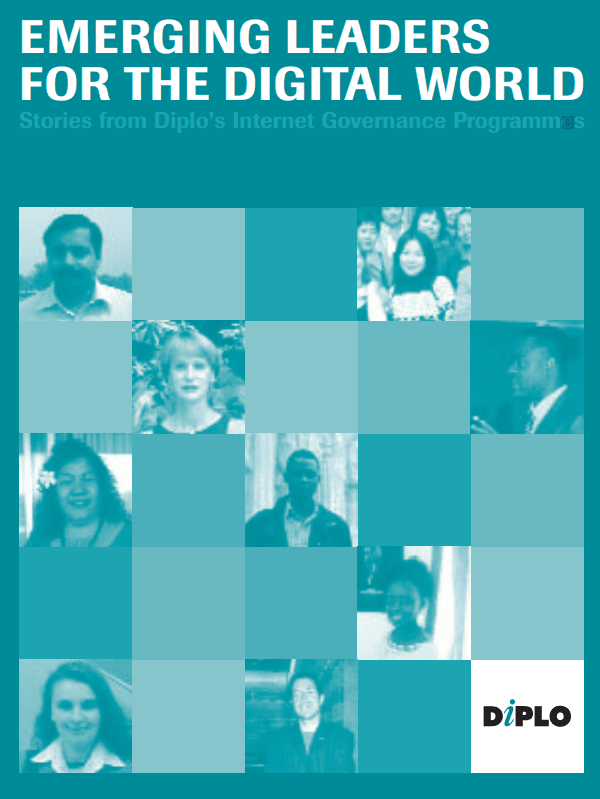
Emerging Leaders for the Digital World 2009
These pages contain the stories of talented people likely to play an important role in future Internet-related developments; all of them former participants in Diplo’s Internet Governance Capacity Building Programme (IG CBP) held between 2005 and 2007.

Breaks through the barriers of development
‘Capacity building is necessary to allow for equal participation... It will require all of us who have leadership positions to gain more knowledge to be able to provide, promote, and support Internet access for all.’ - Angelic Alihusain-del Castilho from Surinam

Dealing with cybersecurity challenges
'Various governments have come up with different interventions to address these challenges, like cybersecurity which is on the rise. The development of human resource and capacity building has been identified as one of the stumbling blocks.' - Godfrey Ahuma from Ghana

[GUIDE] Turn that background off… or on
Context is the main victim in online events. With your light-hearted hat on, watch the 'incidents' captured on video. Plus, follow our tips for an incident-free appearance.
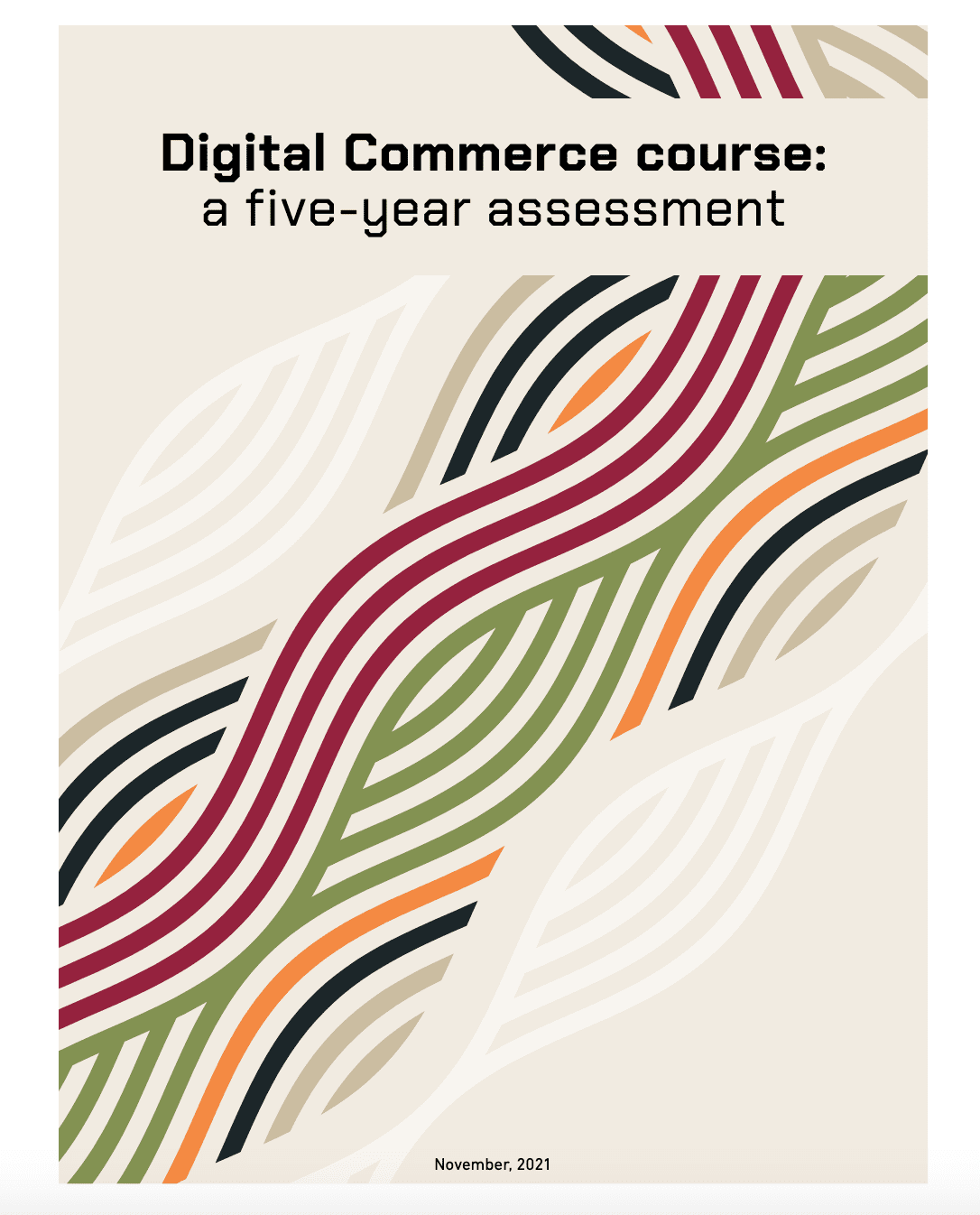
Digital Commerce Course: a five-year assessment
The publication evaluates the impact of the Digital Commerce Course, aimed at providing capacity building on e-commerce to trade professionals. Over the years, the course has helped trade negotiators navigate an ever more complex e-commerce agenda, which currently encompasses a vast range of issues, from trade facilitation to data protection and cross-border data flows. This course has been offered for five years (2017-2021) by means of a partnership between Diplo Foundation, CUTS International Geneva, the International Trade Centre and the Geneva Internet Platform. For more information about ...

[HOW-TO] Broadcasting yourself on social media
The number of social media users who follow livestreams has increased. With this in mind, you can broadcast yourself (and your speakers) directly on social media.

Facing the challenges of an Africa-wide ICT strategy
'There is a need to address these challenges to enhance the capacity of the AU organs, institutions and member states to better respond to instances of ICT policy in Africa. As part of the evolving African governance architecture, there is a need to formulate an ICT strategy...' - Eliot Nsega from Uganda

Teaching computer literacy to alleviate poverty
'I am involved in strengthening education policies at a global level through a forum that will bring representatives from national and international organizations, experts, teachers, NGOs and the youth who are engaged in education...' - Charity Gamboa from the Philippines

[GUIDE] Livestreaming on social media platforms
The number of social media users has increased exponentially. By livestreaming your meeting on social media, you can scale your outreach.

[GUIDE] An in-depth survey of online meeting platforms
Your starting point to choosing the right platform is: how many people will connect to my meeting or event? Or how much will I have to pay for my monthly subscription? If you're organising several meetings, or in charge of your organisation's events, you might consider a mix of platforms. Keep your options open to ensure maximum flexibility.
[HOW-TO] How to use Zoom for hosting an event
Zoom's ease-of-use has earned it a top spot among the world's most popular online platforms. In this beginners' guide for hosts, we will show you how to use it.

Linking the community through capacity-building
'A worldwide community of people is built, accompanied by the network of the organisations and institutions each one represents. Such a community has an enormous analytic and decision-influencing potential once introduced to the global process.' - Vladimir Radunovic from Serbia

Multiplying the value received from the IGF
'I realized I needed to take part in order to get an image of what other countries and regions acting in the process were doing, and to apply this to the reconstruction process in Iraq. The value I got from connecting with leading experts... was immense.' - Rasha Hameed from Iraq

[GUIDE] Using FOSS platforms for your online meetings
Free and open source software (FOSS) platforms are a great option for those who prefer a tool developed in a collaborative and public manner.

The benefits of e-learning
'There is a difference from taking a physical course, and some nuances of real-world, human interaction were missing. Yet, in a way, this difference helped me to concentrate better... in e-learning, one can stay more focused...' - Janyl Bokonbaeva from Kyrgyzstan

[HOW-TO] How to use Join.me for hosting an event
Join.me is a user-friendly video conferencing platform that allows users to connect to video calls by phone or internet (VoIP).

Accelerating the legislative process
'After returning to my home city from the Hyderabad IGF, I talked with the executives of Smart Communications, a stakeholder in ICT here, to take part, if not the lead, in convening an Internet Governance Forum in the country...' - Elias Laurente Espinoza from the Philippines

[HOW-TO] Do’s and Don’ts for Online Hosts and Moderators
Should I encourage participants to use video? How long should the Q&A be? Oh, and do I allow speakers to use PPTs? We answer these and other questions in this How-to for online moderators and hosts.

[TRENDS] Monitoring the shift from onsite to online conferencing
The number of events shifting from physical to online venues is increasing every day. Diplo's Conference Tech Lab is monitoring closely to identify new trends.
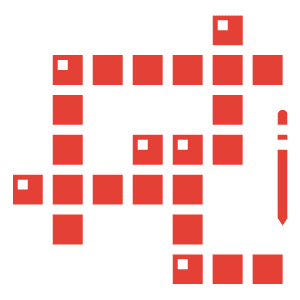
[TRENDS] Did you know? Emerging terms
There is a wide range of terms used to describe the use of electronic tools for meetings. Here's what we're observing.

[HOW-TO] How to use Tixeo for hosting an event
Tixeo provides secure HD videoconferencing from any device.

Cybersecurity competence building trends
Report on cybersecurity competence building trends in OECD countries.
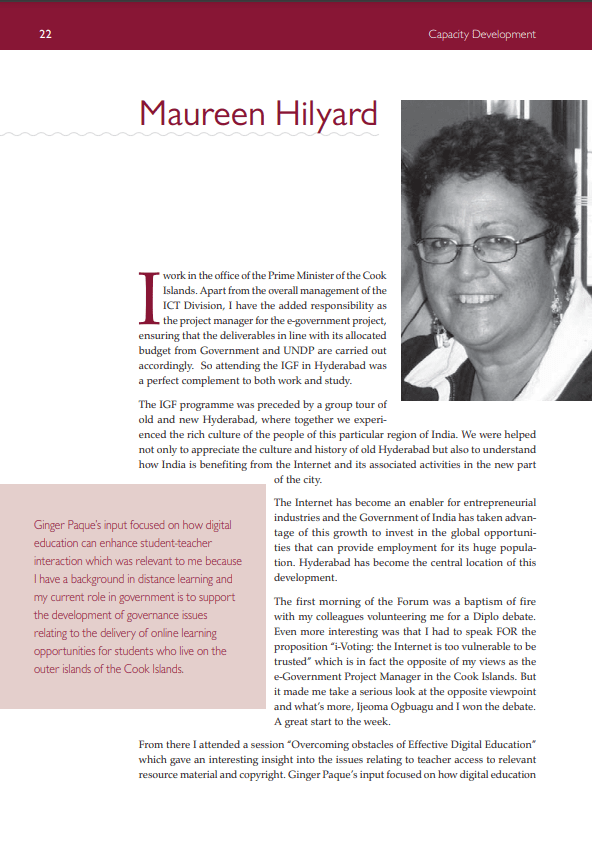
Attending the IGF: An opportunity of a lifetime
'If we in the Cook Islands are to establish ourselves appropriately within the global community then it is necessary that we set up good policies from the outset, based on the best practices of other countries...' - Maureen Hilyard from the Cook Islands

ConfTech Help Desk: Frequently asked questions
The resource contains a list of commonly asked questions about the set-up of online meetings and conferences and the use of online conferencing tools.

[HOW-TO] How to participate in a meeting on Zoom
Zoom is one of the most popular tools. It's no wonder that so many meetings are taking place on Zoom. If you're a first-timer, here's an easy guide on how to access your online room.

Emerging Leaders for a Digital World (2011): Dalsie Greenrose Kalna Baniala from Vanuatu
‘With the number of training courses I have attended, including attending the Internet Governance Forum (IGF), I have learnt a lot.’

[HOW-TO] How to use Cisco Webex for hosting an event
Cisco Webex is an online application for video conferencing launched in 1995.
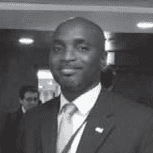
Advancing the interests of small developing countries
'Given the disparity between the participation of developing and developed countries it was clear that more support was needed for the former group to be able to understand the issues and make a meaningful input.' - Rodney Taylor from Barbados
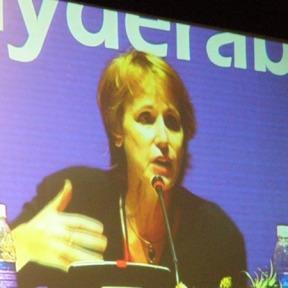
Towards ‘concrete, physical, and local’
'This is not an outside imposition of technology, but an enthusiastic acceptance of support... the ideal situation, where just a push, just a bit of help, can enable the local population to maximise use of resources under their own direction.' - Virginia Paque from Wisconsin, USA

[GUIDE] How to set up your online conferencing presentation
This tutorial will help you set up the scene, lighting, camera, and audio in your home office or studio environment for the optimal videoconference experience.

[HOW-TO] The 8 rules of conduct for online meetings
The online world has some unwritten but recommended rules of (good) behaviour. Keep them in mind when you're attending an online meeting or event.

Tackling privacy issues
'It is necessary to focus the IGF discussion on the real problems associated with the collection and use of personal information. The reality is that there is very little that consumers can do today to protect their personal data...' - Katitza Rodriguez from Peru

[HOW-TO] How to use Teooh for hosting an event
Teooh is a social platform that enables creators and communities to engage in virtual live multi-way conversations.
The latest from Diplo and GIP
Tailor your subscription to your interests, from updates on the dynamic world of digital diplomacy to the latest trends in AI.
Subscribe to more Diplo and Geneva Internet Platform newsletters!
Diplo: Effective and inclusive diplomacy
Diplo is a non-profit foundation established by the governments of Malta and Switzerland. Diplo works to increase the role of small and developing states, and to improve global governance and international policy development.


